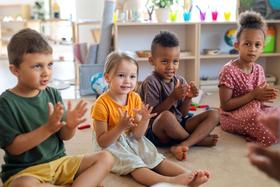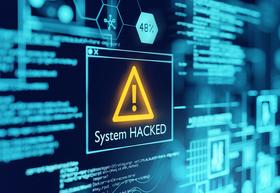Most private schools have an Acceptable Use Policy (AUP) in place governing the use of technology. That means that students in private schools must follow their school's guidelines and directives when using personal technology. Personal technology includes laptops, desktop computers, tablets, and smartphones. What perplexes many mature teachers is that none of these devices were commonly used years ago. The reality is that young people have some or all of these devices and use them naturally, freely, and without much thought. Using technology is second nature to students these days.
As a rule, there are limits on these devices and their use in private schools. Let's look at five things you are not supposed to do with personal technology. Breaking the rules in your school could land you in a heap of trouble, including expulsion. Review her school's personal technology use policy if you are a parent. Then discuss the policy with your child. Help her understand the rules, the limits, and why the school has a technology policy. Remind her further that she has no rights in a private school. So if the school disciplines her for an infraction, there is little or no recourse. That is because private school students are covered by contract law. The rights and privileges are spelled out in the contract you signed with the school. She does not have constitutional rights per se. The contract is a legal, binding document.
Here are five things you must not do with personal technology under the school's jurisdiction.
1. Harass
Harassing is broadly defined as bothering somebody. It takes many forms and runs the gamut from racial to sexual harassment. Most schools strictly prohibit harassment in all its forms. The problem for many students is that they don't consider texting somebody who doesn't want to be texted as harassment. But it is.
Similarly, posting harassing notes or photos on social networking sites such as Snapchat, Instagram, X, TikTok, and Facebook can be considered harassment. You and I both know that children do these things without thinking. They think it is acceptable behavior. But it is not. One of our ongoing jobs as parents is continually discussing and explaining why rules exist and how to live with them. Put another way, what your child thinks is teasing can be interpreted by somebody else as harassment. The lines between teasing and harassment can blur all too easily. Our job as parents is to teach our children to exercise sound judgment.
This video outlines what's involved with harassment in school.
2. Bully
Bullying has always been difficult for adults to catch. It is a form of harassment which hides in the shadows. Years ago, it was something that occurred during recess or after school. Children would taunt another child, beat up somebody, or threaten them with physical abuse. Unfortunately, electronic bullying or cyberbullying, as it is known, is an even harder-to-detect form of intimidation. Bullying, in all its manifestations, is intimidation. Children need to know that it is unacceptable. Anywhere. Anytime. Have that discussion with your children. Don't accept the excuse that "everybody does that."
3. Haze
Hazing for many years was considered a rite of passage. Supposedly it was a tradition. Frankly, if it was a tradition, then it was lousy. Most administrators and teachers have come to their senses and banned hazing in all its forms. Read The Hazing Reader by Dr. Hank Nuwer for a detailed topic examination. Explain to your children that hazing is illegal and unacceptable. Tell them that they must report any hazing which they witness. They must not be silent accomplices in illegal acts.
4. Cheat
How easy is it to take a picture of a test, homework answer, or anything? Dead easy. Children do it without thinking. They take pictures of everything. Smartphones make it possible. They need to know that they cannot do this. They will get caught. They could face major disciplinary action. The problem is that we adults often set poor examples. They see us sneak them into the cinema as children, even though they are over the age limit and should pay the total price. They see our speed. They see us cheat on our taxes. Our example is far more powerful than words. We parents need to show them a good example.
This video gives some examples of how smartphones can be used to cheat on exams.
5. Off limits
Going to sites that are off-limits according to a school's Acceptable Use Policy could mean that your child cannot access the school's network via her personal devices. Examples of websites that are unacceptable will vary from school to school. Consult your school's AUP and discuss with your child what she can surf and what she cannot. The other important principle to teach young people is how to interact with others online. Teach them to trust but to verify, as one of our Presidents put it so succinctly. People and organizations on the Internet are not always who they appear to be. Teach your child never to give out an email address, a phone number, or a WhatsApp or Instagram account to somebody they do not know, i.e., have not met in person. Teach your child not to click on links that may contain malware.
Technology also offers a splendid opportunity for teenagers to waste time. While teenagers have wasted time since the beginning of time, I suspect that nothing much will change. Unfortunately, wasting time needs to be kept to a minimum in these tough times. If America is ever to regain its competitive edge in the global community, our young people must be held to the highest standards of personal and academic behavior possible. Gaming for hours or watching videos is not a good use of a young person's time. Reading is always a better option.
We all need relaxation. Show your young person how to meld all his activities together to excel and achieve the promise he was born with. Show him how to use technology to be more productive. Show him how to use technology to accomplish more. We parents must do that by example.
In today's digital age, we parents have a crucial role in shaping their children's relationship with technology, particularly in private school environments where expectations for responsible behavior are often high. By modeling appropriate smartphone use, parents set the foundation for their children's digital etiquette and time management skills.
When we demonstrate restraint in using devices during family time, meals, or school events, we reinforce the importance of face-to-face interactions and academic focus. This example helps students understand when it's appropriate to use technology and when to disconnect. Additionally, parents who engage in meaningful conversations about online safety, digital citizenship, and the potential pitfalls of excessive screen time equip their children with valuable knowledge and critical thinking skills.
By actively participating in our children's digital lives and setting clear boundaries, we parents can foster a healthy balance between technology use and other aspects of life. This guidance is especially vital in private schools, where academic excellence and personal development are often emphasized. Ultimately, parents who lead by example in responsible technology use contribute significantly to their children's success in and out of the classroom.
Questions? Contact us on Facebook. @privateschoolreview
























